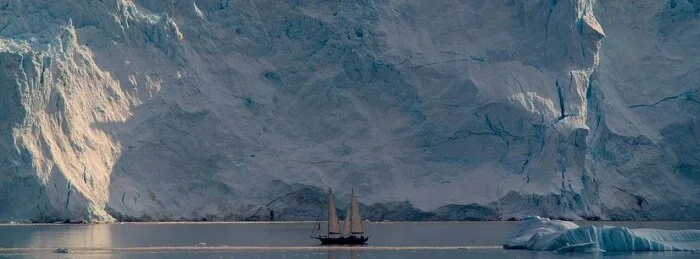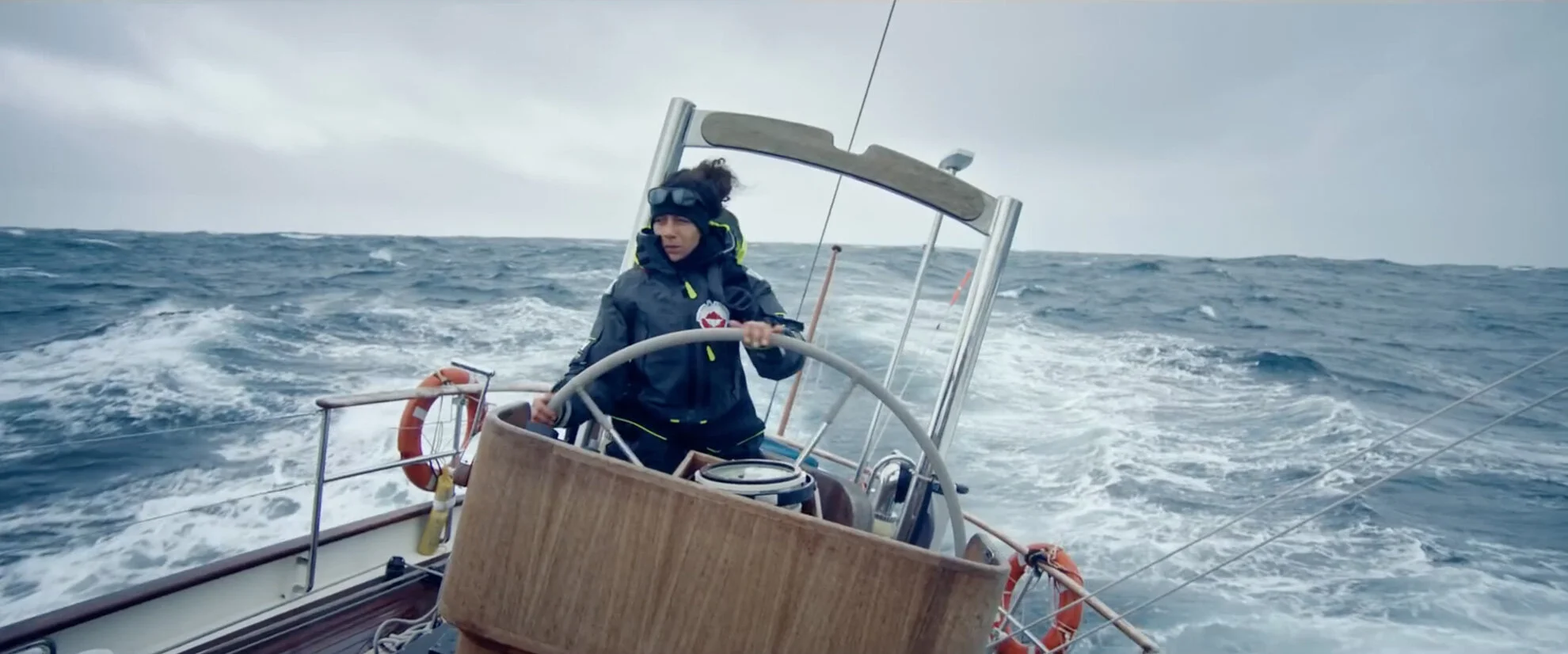LFF ’18: “The camera is a gun” – An Interview with Viktor Kossakovsky on Aquarela.
“In aquarela, in watercolours, there is no sharp border between one colour and another, it’s diffusing. ” – director Viktor Kossakovsky tells me as we discuss the edit of his latest piece Aquarela – a transfixing observational experience of water and its unpredictable, ever-changing nature. Although other filmmakers have previously experimented conducted frame speed experiments, with results of debatable success, when Kossakovsky decided to film Aquarela at an unusual 96 frames per second, he introduced a cinematic algorithm for the speed of water. Beginning at lake Baikal – a place with an almost mythological status in Eastern Europe, the film’s masterful shot transitions transport us to Iceland, to Venezuela, Botswana and Miami, granting a sensual understanding of how everything that is water in this world, including ourselves, is intricately connected to everything else. In all its states, water is the real character here, and humans are small figurines positioned on a wide-lens landscape. Kossakovsky is not indifferent towards human life, but he realises its insignificance in the eyes of the planet. As an observation in the present tense, Aquarela is also an environmental wake-up call the world needs direly that shows us how our actions lead to events we are too small to control.
NEC: Aquarela feels like a love letter to the uncanny grandeur of water in all its states; yet the film also translates into a strong environmental statement. Was this a direction you wanted to explore from the beginning?
At the beginning I didn’t want to my film have any connotation with this, but then I thought about the way people talk about Global Warming – we ask ‘do you believe in global warming?’ as if it is a question of belief. If you know that there is global warming, then why use the term believe – so it made me think that there are people who still don’t believe. If you are a filmmaker, then you have the tools to prove that global warming is not a question of belief. Filmmaking is a huge tool. The camera is a gun – you can kill with it, but you can also use it for proof – many other filmmakers have tried to prove that there is global warming. I was afraid of that my film might turn into propaganda, but then again, not including it is also propaganda. That’s why for me the most important thing was that my motivation is clearly cinematic. In the end, of course, when you experience what we experienced – filming in such conditions – when for two weeks you witness constant ocean waves if 15 metres or higher unfolding in front of you with no breaks… they don’t know human breaks… water flows constantly without stopping. Think of a waterfall – it might carry on for millions of years… and it is in this that you realise who you are, that we know nothing. The span of our existence is nothing compared to the lifespan of this world. Before Isaac Newton died, he said, “What we know is a drop, what we don’t know is an ocean” and this was the only line I put in my script. When we finished the film, I realised he was wrong – we don’t know even that drop. We keep on saying that we are most important, but once you have seen all this you can’t believe in your own importance anymore . We are bastards who destroy everything and kill everyone: animals, humans who don’t look like us, even those similar to us. Within one group of people we can still kill millions, we can make concentration camps, invent torture, we can make chemical weapons, nuclear bombs, guns and we are proud of this. We kill a billion animals per year, a billion! It’s just what we do. The mistake is on the first page of The Bible: “God created light, darkness, the ocean, earth, plants, animals – and then created the human to take care of it all.”And we believe this. We believe that we are most important and we can do everything we want. Now I know that this experience has changed me. Now I think, I just need to respect this before everything else. Respect this place – you don’t even need to love it – respect it.
NEC: I want to go back to what you said about people suddenly disappearing from the planet. A lot of the scenes in Aquarela leave the spectator with the impression that they are somehow witnessing events that no human eye could have been able to see. Yet, your camera was there to capture all of it.
We had this in mind. Everyday we thought that we need to create something that will make people wonder how we did it, and not know. I believe that, especially nowadays that cameras are so cheap and you can make a film with your smartphone, filmmakers are supposed to offer the extraordinary and things that not everyone can do. If you go the Rembrandt museum, you see how much time he spent refining colour. Same with Leonardo, you see how many secrets are encrypted in his work. Same with everything I have been trying to do with every one of my films.
NEC: You mentioned that the Isaac Newton quote was the only note you put on your script and I was wondering to what extent were you able to do pre-production planning for this film, and do you find it important for your work?
The most important and most difficult thing you need to do in pre-production is to convince people to fund you. If you say that the main character in your film is water, it’s already bad enough; and if you say there’s no story, that’s a horrible thing; and if you say there’s no voice-over or any narrative, then it’s impossible to finance. Most of the times I was just waiting and dancing in front of investors, trying to explain what my film was about – it is difficult even now to put it into words and if it hasn’t been made yet, how do you express your intentions? It was difficult. Otherwise of course we still planned to an extent – I knew where I wanted to go, so maybe location was pre-planned, but that was not always the case. On the very first day everything turned upside down and instead of filming beauty, the beautiful ice, we filmed tragedy, and the film took a different direction. Each subsequent episode came from the previous and production was a nightmare.
NEC: The poetic observational approach seems an unquestionable decision when making a documentary about the power of water, but it was precisely the witnessing of tragedy at lake Baikal that made me wonder if you found it difficult to remain behind the camera.
Of course, we actually stopped filming – you didn’t see the body, you can only guess. We filmed a lot but showed little. This is a question that goes for every documentary film – this might happen in front of you and you must decide if you are filming or not, and if you are going to include it in your film or not. If I never included it, I might have slept better, but if I included it, I might prevent another death. This was my moral question and I decided to include it. The camera is rolling and sometimes things like this, that you can’t even imagine, happen in front of you. This is… the camera is a gun…
NEC: I wanted to ask you about the soundtrack of the film. From the very beginning, and then at certain moments, the flow of the water and the crushing ice are accompanied by the epic score of Eicca Toppinen that makes the film look like a symphony of destruction of a sorts but also grants it a certain sense of irony. What was it that attracted you to this particular score?
I wanted, from the very first second, to separate my film from what people call documentary and immediately tell my viewers that they are watching something else, and make them curious that way, wake them up. I wanted them to see this first moment and watch until the end, so it was a trick. Of course, I lost five high intellectuals who said “Viktor, what is this? What kind of music is this?” but I got those who never watch documentaries.
NEC: Before we wrap up, earlier you mentioned animals and the way humanity treats them and I know your next film focuses on those topics.
Oh yes, yes. I am making a film about a pig, a chicken and a cow and it looks like it might be my most beautiful film. I finished filming, so I can say that I have never gotten such amazing footage. I am so happy that I did it, as it is something I always felt I had to do. I wanted people to know what a chicken can tell us. You think nothing, but they know a lot. A cow can teach you and a pig can teach you. A cow can teach you what is freedom. Can you believe it? You don’t believe it until you see it, and then you see it and still can’t believe it. My skin is getting goosebumps, and it makes me so happy that cinema can do this. There is no other way you can get this, it doesn’t matter how great of a writer you are, you can’t write this. You can only know it if you watch it. And again, you need to know how to look. So only film can give you this experience, to see their souls – chicken have souls, they think, they make decisions, and you see it. You see it! A pig can make sacrifices, and you see it – it’s unbelievable and it’s happiness to see it. This is why I say that cinema is a tremendous tool, but we use it wrong. We are still telling stories. I am beginning to hate this. We shouldn’t tell stories, writers are for that – we have to show something. When we listen to stories, we don’t know what is real life anymore. We believe in stories instead, and if they are good, they can maintain our belief for two thousand years, keeping us from seeing what is real. The storymaker is blind.
Aquarela screened as part of the Official Documentary Selection at ’68 London Film Festival.


